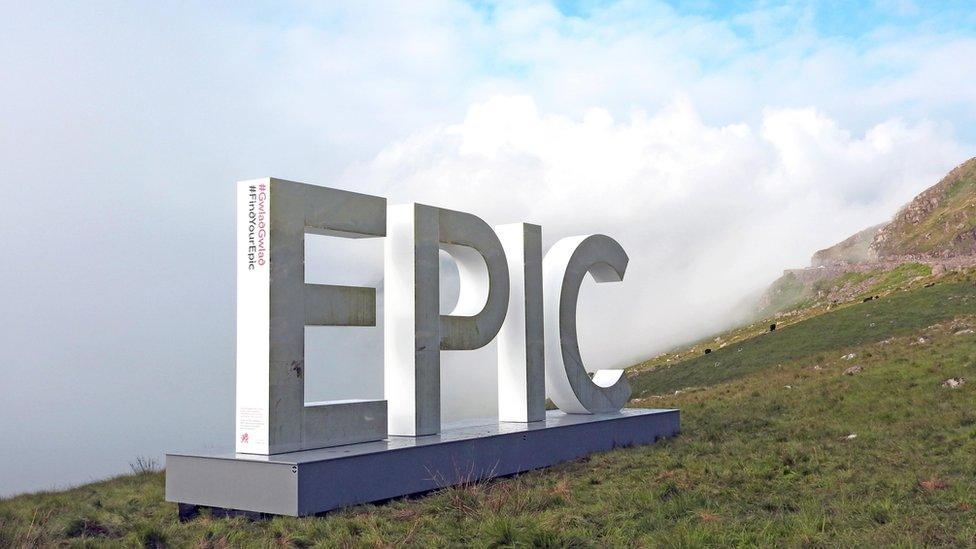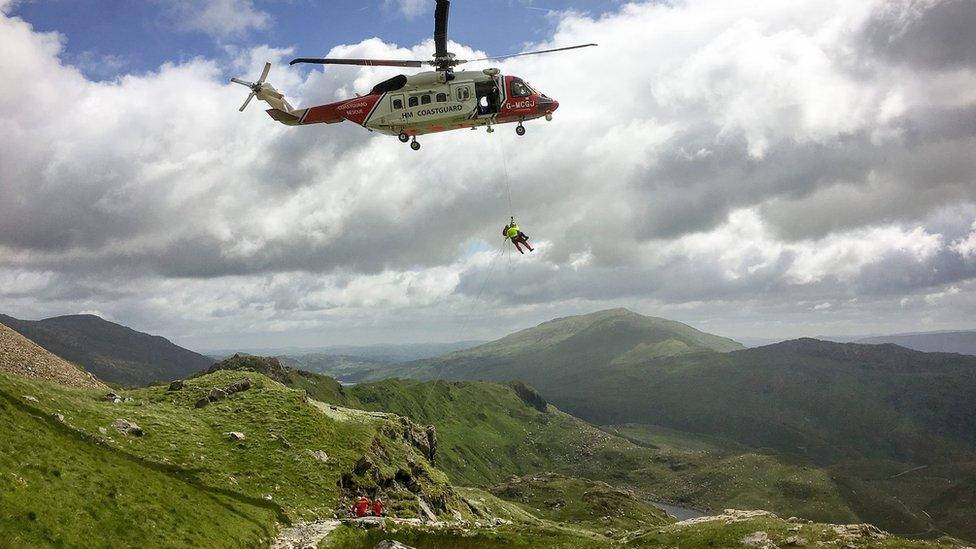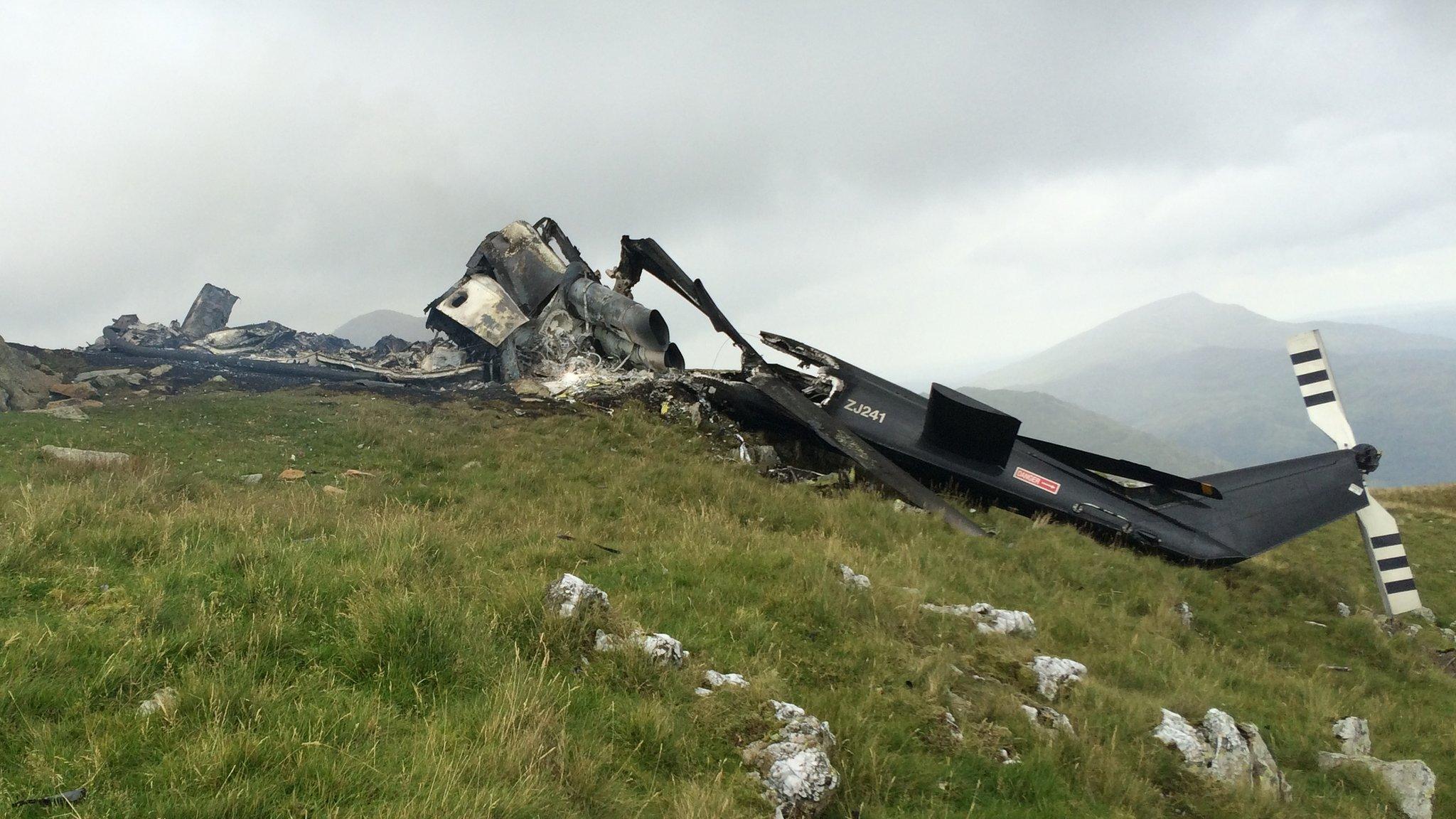Snowdon mountain rescues increase 'unsustainable'
- Published

A promotional "Epic" sign at Pen-y-Gwryd, Snowdon
A drive to attract tourists has led to an increase in ill-equipped walkers and climbers becoming stranded on Snowdon, rescuers have claimed.
Llanberis Mountain Rescue was called out a record 43 times to Wales and England's highest peak in August - an increase it called "unsustainable".
Visit Wales' recent year of adventure campaign encouraged to visitors to "Find Your Epic".
The tourism body said the campaign was "an opportunity to promote safety".
Llanberis Mountain Rescue said many of those tackling the peak were unprepared in terms of knowledge and equipment, with many needing assistance.
Chairman of the team of volunteers, Rob Johnson, said "serious consideration" needed to be given to how the 3,560 ft (1,085m) peak was managed.

The coastguard were involved in a number of the rescues
He said the drive to attract tourists contributed to an "unsustainable" rise in callouts - from 34 in August 2015 to 43 in August 2016.
The organisation relies on donations and about 1,000 volunteer hours were spent attending incidents - including an RAF helicopter crash landing.
He said many of the callouts were preventable and, with the right knowledge and equipment, they could have been avoided.
"We've attended a variety of incidents this summer but the most common have been lower-leg injuries, people too tired to continue and people crag-fast on Crib Goch," said Mr Johnson.
'Massive commitment'
"It has been a massive commitment from a small group of volunteers."
Visit Wales, the Welsh Government's tourism team, said it encouraged visitors to participate in activities with accredited providers.
A spokeswoman added: "The year of adventure is also an opportunity to promote safety in the great outdoors.
"Mountain rescue teams do great work in helping people, but as the adventure sector continues to grow there is no doubt rescue teams will need the help of educators in minimising the risk of people needing their assistance.
"That's why we will continue to work with partners and the industry so that people can enjoy Wales and be safe."
- Published9 August 2016
